Women Lead Sports Master Program Graduates 40
Tuesday, January 25, 2022 - 12:39 By United World Wrestling Press

CORSIER-SUR-VEVEY, Switzerland (January 24) -- Last week, Women Lead Sports Master Program celebrated the graduation of the new generation of women leaders within the wrestling world.
World-renowned expert Gabriela Mueller spearheaded the course with over 40 participants -- 95% women – from all five continents.
The objectives of the Women Lead Sports Master Program were to empower participants to shape the future of wrestling as a global sport, increase a diverse talent pool in leadership within UWW at all levels, and to learn effective leadership strategies, techniques, and applicable tactics that work today.
“Despite the challenges related to COVID, we managed to organize another successful virtual leadership programme to advance the gender equality topic in our sport. As part of the strategic plan 2022-2026, we hope to see more women and men of the future generations in leadership positions,” said Deqa Niamkey, UWW’s Development Director.
Participants learned valuable communication tactics that’ll assist them in negotiations and persuasions through the course’s interactive breakout sessions and discussions. They also learned how to build their personal power and influence and how to use them when persuading voters and key decision-makers.
“United World Wrestling and Deqa Niamkey, with her Leadership, once again models what leaders do: empower new leaders who empower more leaders.” She continued, saying, “to the team, to every participant who is now proudly displayed as a graduate of the program and amplifying their impact under," said the award-winning trainer and coach, Mueller.
Women Lead Sports Master Program Topics:
- Personal Power and Influence
- Stakeholder management and use of skills navigating politics
- Self-awareness of personal leadership style, areas of development and strengths
- Communication and Persuasion skills
- Negotiation skills
- Networking, sponsoring, mentoring, and lobbying skills
- Self-confidence, courage and assertiveness
- Sport Electoral year and best practices
- Leading in male-dominated environments with success and authenticity.
Women Lead Sports Master Program Graduates: https://www.womenleadsports.com/sports/wrestling-freestyle?fbclid=IwAR3p2Q5KsmYVwA54ILYv5F8Mb-ww7hnBahua72Nf7KZOCCWubaF_oE6BaGg

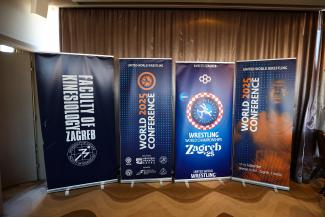
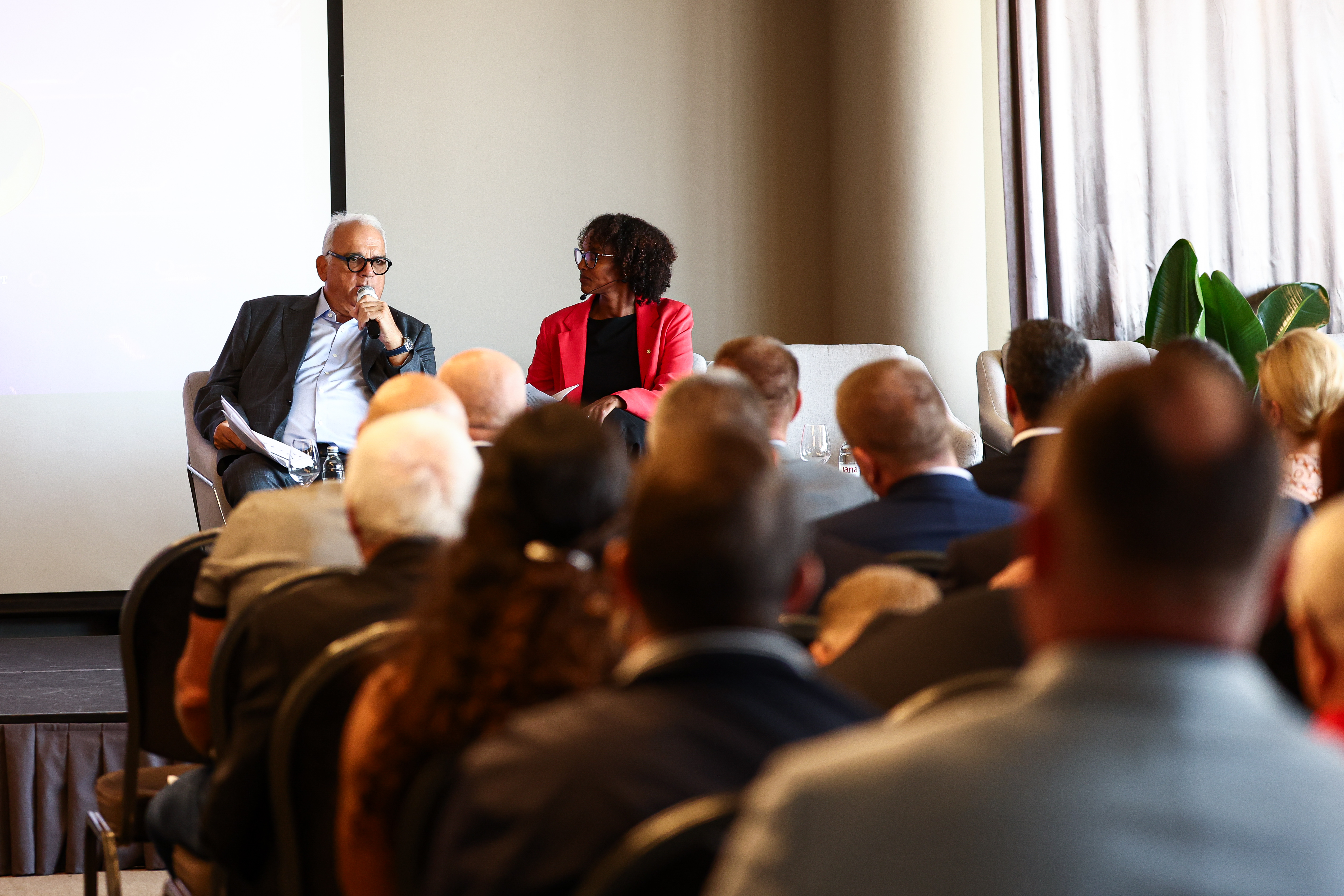 United World Wrestling President Nenad LALOVIC at the World Conference. (Photo: United World Wrestling / Jake Kirkman)
United World Wrestling President Nenad LALOVIC at the World Conference. (Photo: United World Wrestling / Jake Kirkman)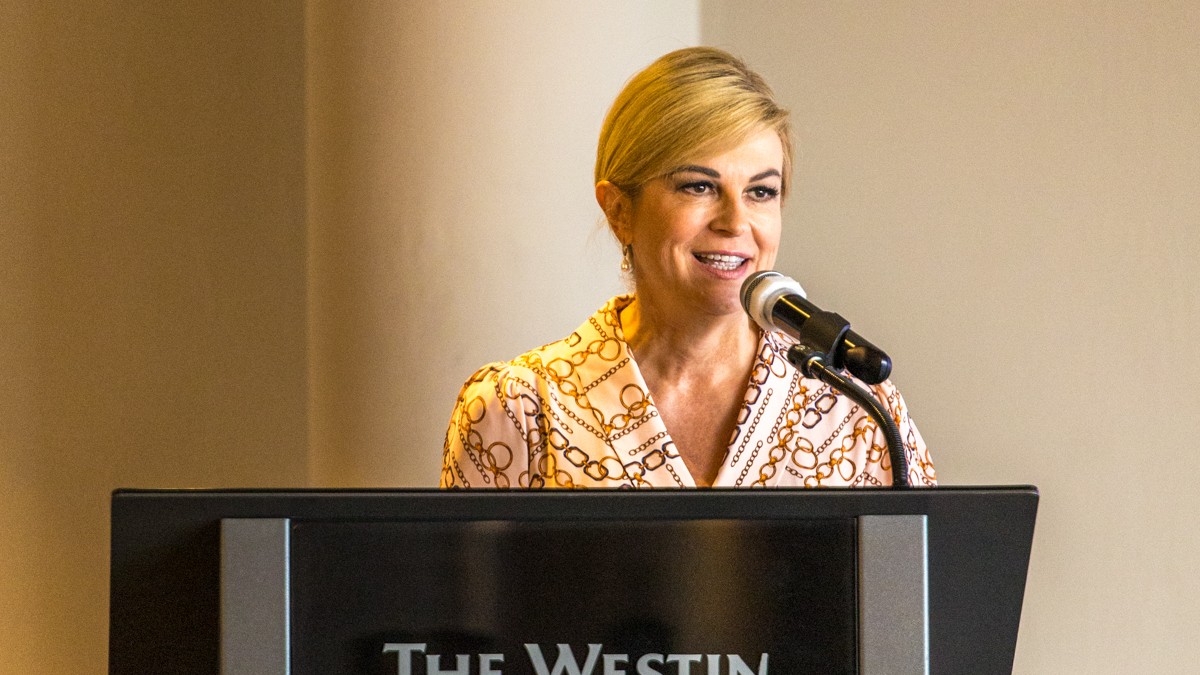 International Olympic Committee member and former President of Croatia Kolinda GRABAR-KITAROVIC.
International Olympic Committee member and former President of Croatia Kolinda GRABAR-KITAROVIC.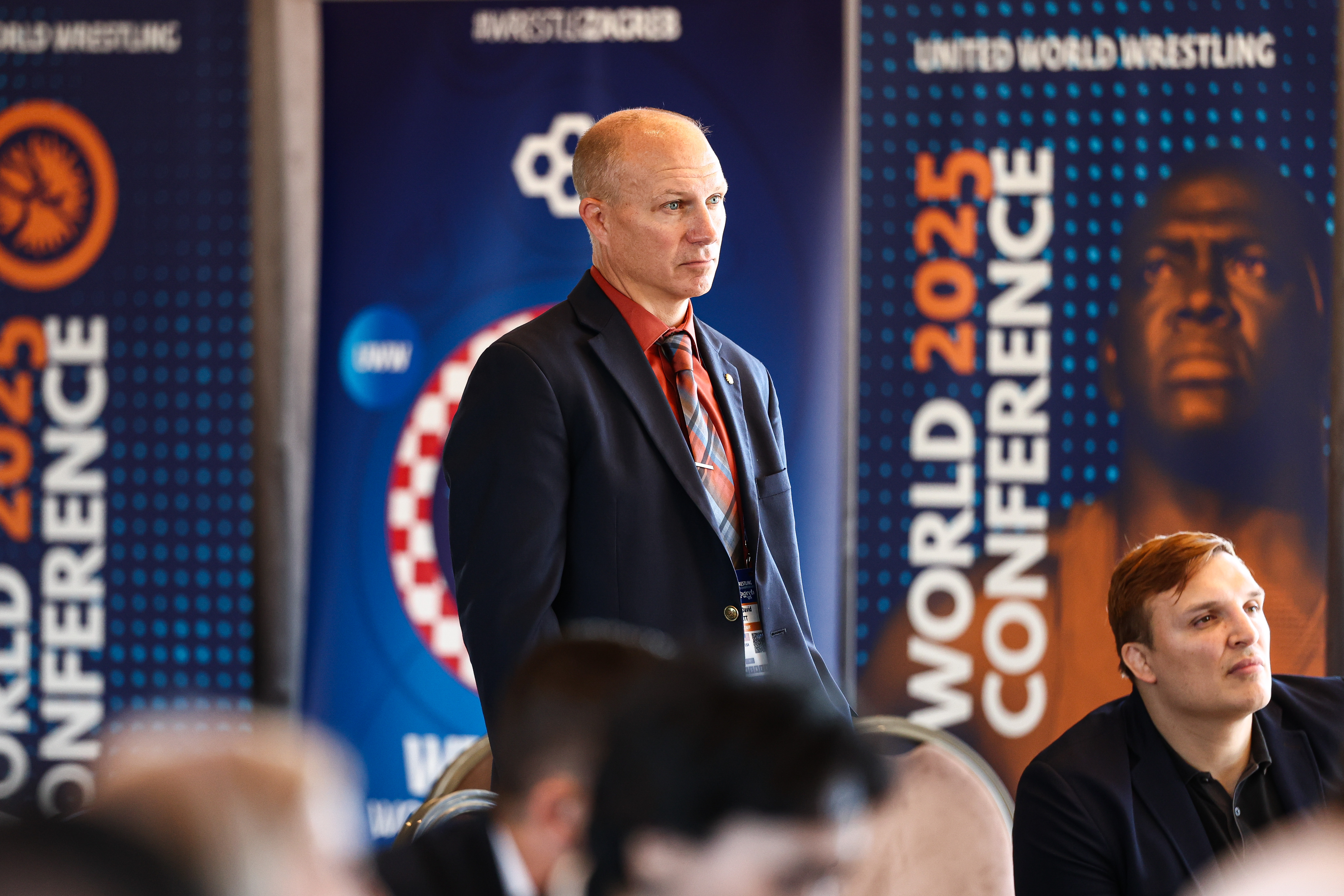
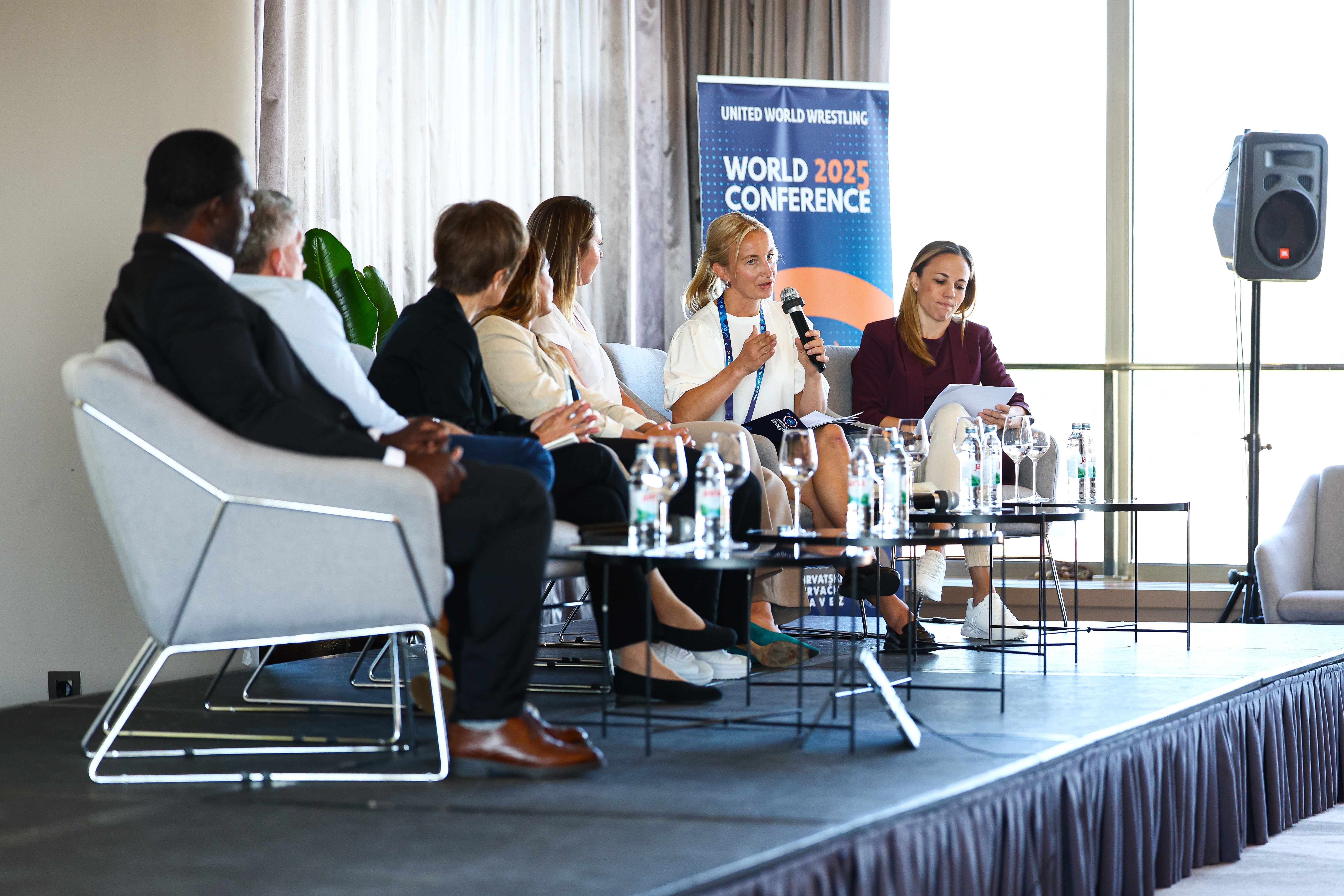
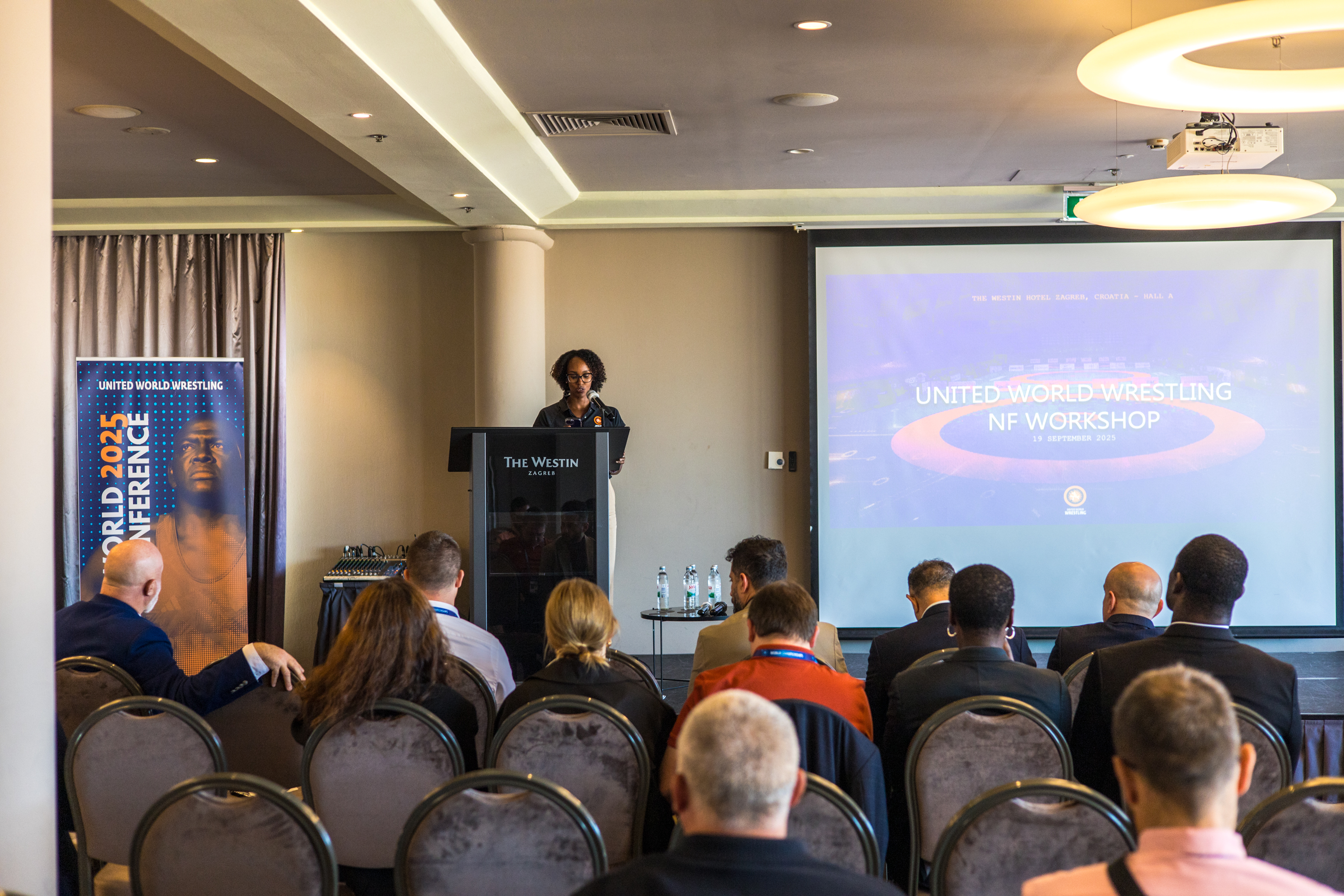 A national federation workshop organized by United World Wrestling in Zagreb.
A national federation workshop organized by United World Wrestling in Zagreb.
Share your thoughts.
Comments